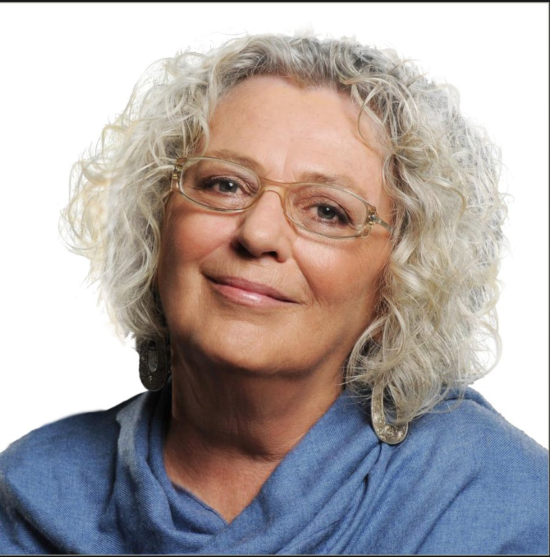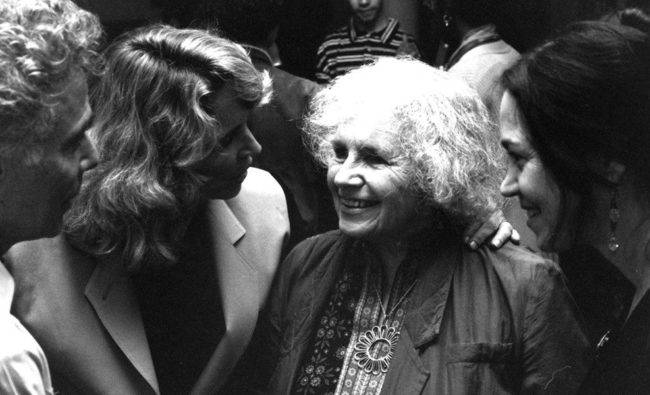There seem to be three basic ways most of us adapt to aging: with our eyes shut, with our eyes half open, or with our eyes wide open.
The first group consists of those in denial about aging, like women who protest, “Don’t ever call me old!”
The second group is where most of us fall; some days we acknowledge our aging and plan for our dotage and other days we push our aging aside.
The third group is made up of those who recognize their time is running out, committing their later years to healing past wounds and to celebrating joy in their everyday lives.
My unscientific but ample observations lead me to conclude that those who invite aging into their lives, meeting it with open eyes are happier than those in denial or those wishy-washy about aging.

Agnes Varda, the recently deceased French filmmaker who faced her aging while radiating joy in her life and in her films
When one finally accepts the inevitable physical decline and the imminence of death, the struggle often goes out the window. Energy is no longer expended trying to shave off the years through Botox, killer workouts or anti-aging smoothies. The energy previously employed in fighting back Mother Time is now available for growing old gracefully.
Kathleen Dowling Singh, author of The Grace in Aging, defines graceful aging as a time of awakening where we pursue a life of compassion ruled by a tender heart. Softening the heart is contingent on addressing our laundry list of grievances or stored hurtful feelings.
Shedding hurts that haunt us involves a forgiveness practice—for full details see: http://wowblog.me/liberate-yourself-from-past-hurts-practice-forgiveness/
It can be incredibly liberating to find yourself no longer reacting to a mean-spirited relative’s taunts or to acquire a new perspective on childhood wounds where they no longer torment you.
For me a welcome aspect of aging gracefully, where I’m still very much a work-in-progress, is the chance to indulge my curiosity.
What books will teach me how to be kinder to others and myself? What can I learn from those who have written about the end of life? And best of all is the opportunity to exchange views with others on this journey. I treasure sharing with like-minded friends.
Time spent in solitude is critical for getting in touch with fears and hang-ups that hold you back. Set the stage by starting with a favorite spiritual passage or Mary Oliver poem. Read something that stirs you, put it aside and allow your mind to rest until some new thoughts or images surface. If you follow this practice a few times a week you should feel clearer and calmer.
For me aging gracefully is not by any means a deadly serious enterprise but one filled with humor and joy.
I’ve learned to laugh at myself when my ego swells. I’m on alert for the unexpected which can make me smile or feel more alive—a neighbor walking her rambunctious puppy; silly moments with the grandkids; Yo-Yo Ma playing his cello at the Mexican border.
A paradox of aging gracefully is that it demands time alone to clear one’s head but it also asks us to bring our mature, deepened capacity for connections to the world at large. This might mean sharing our wisdom with younger cohorts, volunteering for a service organization, like Meals on Wheels, or participating in a political action like climate rebellion.
The core of aging gracefully might be contained in these words of Ram Dass:
“I would like my life to be a statement of love and compassion—and where it isn’t, that’s where my work lies.”





